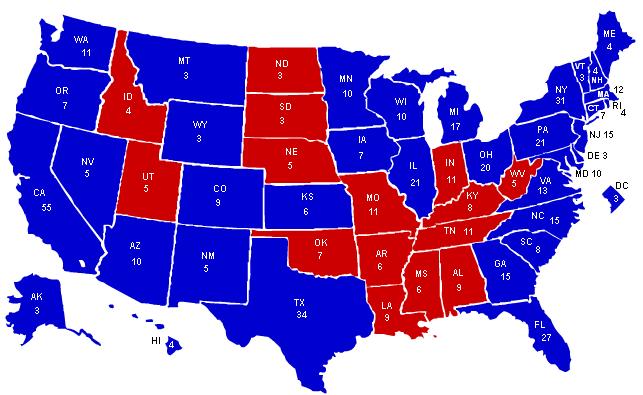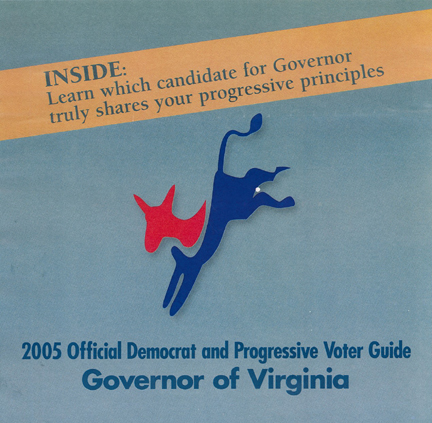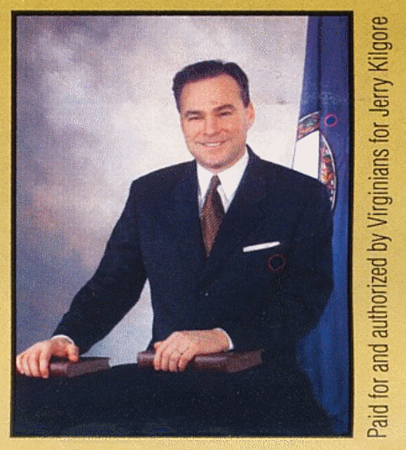I've been watching the Alito confirmation hearings over the past two days, and I learned a lot. I learned about how a group of conservative Princeton alumni tried to keep women and minorities out of the school. I had a refresher course in how there are three branches of government and that Congress makes laws, not judges. I also found out that Alito is a family man.
But what I haven't learned about is anything relating to Alito's judicial views. He has simply refused to answer just about every question asked of him, other than on the completely noncontroversial principle of one man-one vote. Case in point today:
SCHUMER: And yet you said yesterday and I think you repeated today to Senator Kohl and maybe Senator Feinstein as well, but what you said yesterday was, quote, "I think that one person, one vote is very well settled now in the constitutional law of our country."
So you were able to answer on the basis of something as to whether it's settled, not being in the -- the words are not in the Constitution. But you were queried by a few of my colleagues and you had a different explanation.
Now, you said you can answer on the other issues because it's settled law; it's not going to come before the court.
So let's go over settled law a little bit.
In case after case, you have been telling us -- you have been comfortable telling us that certain cases are settled and yet you won't use that word with respect to Roe. You've done it in a host of other cases and issues. I'll read a few.
So, "I think that one person, one vote is very well settled now in the constitutional law of our history" in response to Senator Kohl.
"The status of independent agencies I think is settled in the case law." That was in response to Senator Leahy.
"But I do think that most of those commerce clause cases in the years preceding Lopez, the ones that come to mind I think are well settled precedents," reference to Senator Feinstein.
"I think the scope of immunity that the attorney has is now settled by Mitchell v. Forsyth, and that's the law."
So can you answer the question? Is Roe settled or not?
It's less of a concern which way you answer. I just would like you to answer the question.
You can say: Roe is not settled; Roe can absolutely be re- examined. I think a lot of people think that's the answer you want to give but it's controversial. And you may not want to give it because it's controversial, even though some of these other issues will come before the court.
Commerce clause cases will come before the court. Certain types of one man, one vote cases will come before the court. Certain types of administrative agencies will come before the court.
SCHUMER: So, why is it only when it comes to Roe, you can't tell us whether it's settled, whether it's not settled or how it is settled. And you can pick any formulation you want.
Other judges have commented on Roe being settled and Lindsey Graham pointed out -- he's not here -- but Ruth Bader Ginsburg talked about her view and she still got a lot of votes on the other side of the aisle. Same might happen to you.
So, the question, Judge Alito...
(LAUGHTER)
The question, Judge Alito, is: Why won't you talk to us about Roe in terms of whether it's settled or not when you will about so many other issues, even issues that would come before the court?
ALITO: The line that I've tried to draw -- and I've tried to be as forthcoming as I can with the committee. I've tried to provide as many answers as I could. And, obviously, I'm speaking here extemporaneously in response to questions. The line that I have tried to draw is between issues that I don't think realistically will come before the court and on those I feel more freedom to respond. And one person, one vote is an example.
SCHUMER: Sorry to interrupt, but we have limited time. What about commerce clause? Raich came to the court a couple years ago. Raich has roots all the way back in Wickert v. Fillburn.
You talked about commerce clause cases being settled.
ALITO: Well, it depends on which commerce clause cases you are talking about. Certainly, the initial commerce clause cases that moved away from the pre-New Deal understanding of the commerce clause have been on the books for a long time.
Maybe I have been more forthcoming than I should have been in some areas. And, if that's the case in providing these extemporaneous answers, I can be faulted for that.
But the line that I have to draw, and I think every nominee, including Justice Ginsburg, has drawn, is to say that, when it comes to something that realistically could come before the court, they can't answer about how they would decide that question.
ALITO: That would be a disservice to the judicial process.
This is the Republican strategy now. Talk at length about meaningless points but never respond to an actual question. This is then combined with neverending praise from Republican Senators, who instead of asking questions, seem intent to criticize Democrats for doing so.
GRASSLEY: And I think several horses have been beaten to death, particularly on the other side. And you've been very consistent in your answers, and I thank you. And I think that that speaks to the intellectual honesty of your positions.
It's kind of like we're in the fourth quarter of a football game and you're the quarterback and your team is way ahead here in the fourth quarter and opponents are very desperate, trying to sack you and aren't doing a very good job of it. And they haven't hit you all day, now for two days.
And you're going to keep getting these last-minute Hail Marys thrown at you. So just bear with us.
I want to compliment you, first of all, before I ask some questions, and I just did, to some extent, about the consistency of your testimony, but I think it's been good. I think under very difficult circumstances you've handled yourself very well -- being responsive, forthright, thoughtful.
I sense in you a person that's very sincere. And, obviously, I don't know you except this appearance here and the small period of time we spent in the office. Seems like you have modesty, that's a breath of fresh air, demonstrating a command of and very much a respect for the law and the Constitution, of course.
GRASSLEY: And this is all stuff that we ought to be looking for in the tradition of Alexander Hamilton saying the role of the court -- or the Senate is to make sure that only competent people get on the court and that political hacks do not get on the court.
You are surely no political hack, and you are very competent. And that's been demonstrated with your fair and open-minded approach to your being a judicial person.
It is too bad that we are getting this misconstruing of your record or the answers, the claim that you have not written a single opinion on the merits in favor of a person of color alleging race discrimination on the job in your 15 years on the bench.
I have looked at a lot of opinions you have given, and it is just not true. Your record shows that you ruled in favor minorities making allegations of racial discrimination in employment not once, but in a number of cases.
The claim that you acted unethically in the Vanguard case is just not true. You did nothing improper and actually went beyond the rule to ensure compliance.
The claim that you would support an unchecked executive is just not true. Your record shows that you have repeatedly ruled against the government and that you have told us no one, including the president, is above the law.
The claim that you have ruled in a vast majority of time against the claims of individual citizens in favor of the government and large corporations is just not true. The reality, as I see it, that you have found in favor of the little guy in numerous cases but because of who was right and who was wrong, not just because you have a bias one way or the other.
GRASSLEY: Your critics are, I think, grasping at any straw to tarnish your record, and that's unfortunate.
Then, follow up the simulataneous praise of Alito and criticism of Democrats with trivial questions.
GRASSLEY: Judge Alito, in your opening statement you said -- and I hope I quote you accurately -- "No person in this country, no matter how high or powerful, is above the law, and no person in this country is beneath the law."
You didn't go into detail about what you meant. I think it's quite clear above the law. But give us that diverse opinion, above the law versus beneath the law.
ALITO: Every person has equal rights under the law in this country, and that involves includes people have no money, that includes people who do not hold any higher or prestigious position, it includes people who are citizens and people who are not citizens.
Everybody is entitled to be treated equally under the law. And I think that's one of the greatest things about our country and about our legal system.
I can just imagine a followup: Judge Alito, do you eat babies? "No, in fact I would find that disgusting."
I would laugh off the ridiculousness of these hearings if they were not of paramount importance. Samuel Alito is going to affect the way Americans live their lives for the next 30 years or more. The Supreme Court in future years will hear cases on personal liberties (ex illegal wiretapping), end of life issues, origin of life issues, separation of church and state, and a whole gamut of new legal dilemmas caused by new medical, computing, and communications technology. These hearings should allow the Senate to carefully weigh the merits of Alito's nomination. Instead, the Republicans have made a mockery of the process, and in effect the Constitutional provision for advice and consent of the Senate.




